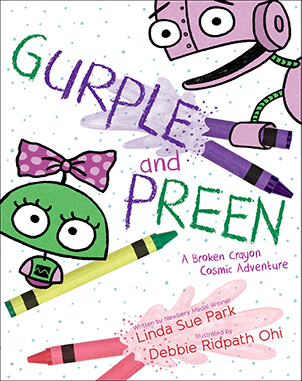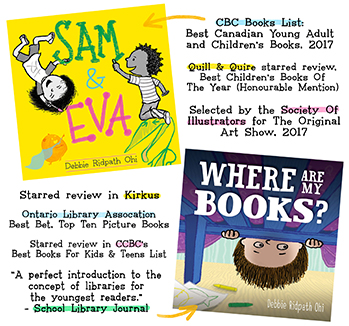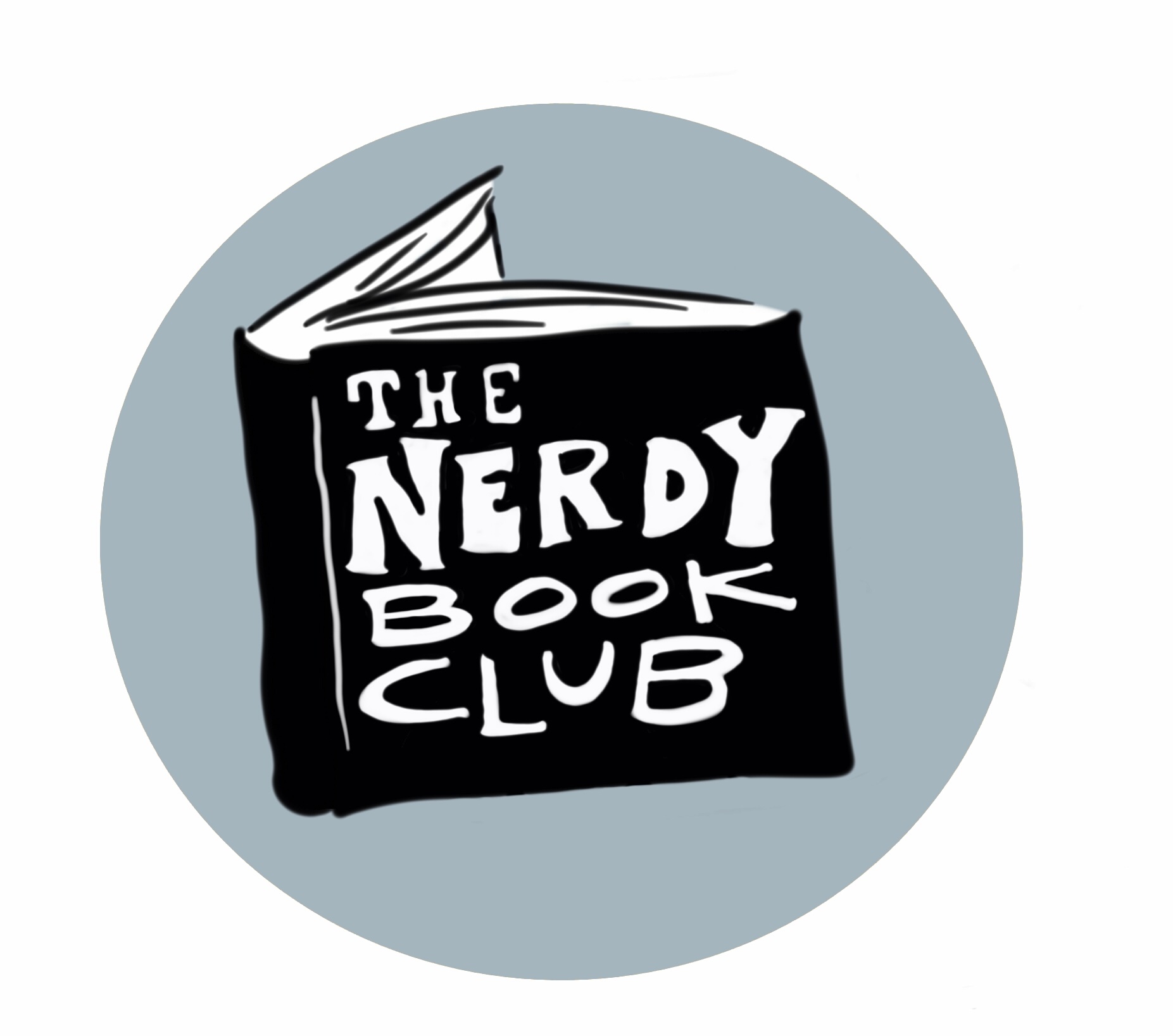Interview: Jo Karaplis on Fractured Fairy Tales
Jo Karaplis lives and breathes books. During the day, she works for a children’s publishing house in Toronto. In the evenings, she’s usually either reading a book or working on her own. Jo's also a member of the Toronto Middle Grade/YA Writer Group (Torkidlit), which is how I met her.
Jo's website: http://www.joannakaraplis.com/
You can find also Jo on Twitter, Facebook and Goodreads.
Love the way you told each of the three fairy tales in a slightly different style. What made you decide to use this format? How did you choose which style would be best suited to each fairy tale?
Honestly, it wasn't something I planned out in great detail beforehand. "Snow White and the Seven Dorks" was the story that came to me first. I could picture Yuki perfectly, and I knew she'd want to talk directly to the reader, so I let her be the narrator. The scene at the school dance was the most captivating for me, so I wanted to have it at the beginning of the book, but I didn't want to bog it down with back story, so I decided to switch back and forth between the action at the dance and how Yuki ended up there.  When brainstorming about different fairy tales, Cinderella struck me as a tale that would have turned out much differently with cell phones or the internet, which gave me the idea to tell it entirely through texting and blogging. It was really fun to write, but I did worry that readers would find it unsophisticated. (Thankfully, most people who reviewed the book have really liked that story!)
When brainstorming about different fairy tales, Cinderella struck me as a tale that would have turned out much differently with cell phones or the internet, which gave me the idea to tell it entirely through texting and blogging. It was really fun to write, but I did worry that readers would find it unsophisticated. (Thankfully, most people who reviewed the book have really liked that story!)
I originally tried to tell the final story, a retelling of The Little Mermaid, in the third person just for variety, but it was such a personal story that I switched back to first person, which I think worked much better. Because of the ending (which I won't spoil!), it was necessary to do that one in straight chronological order.
What are some of your other favourite fairy tale retellings?
I actually haven't read too many retellings, although I've got some on my to-read list now. And I loved the movie Tangled!
Twisting and retelling fairy tales is an old tradition. I remember seeing fractured fairytale cartoons on Rocky & Bullwinkle reruns as a kid. When I was in high school, fractured fairy tales popped up a few times: my younger sister brought home a picture book called The True Story of the Three Little Pigs (Jon Scieszka), the Politically Correct Bedtime Stories series by James Finn Garner came out, and I read a few fable retellings in Margaret Atwood's Good Bones. I was inspired to do my own versions, and ended up writing a play in which a few famous fairytale princesses went on a talk show to discuss what happened after "happily ever after" (hint: they had some grievances to air!).

What was your writing process for this book? (outline first or plunge right in? how much prep? etc.)
I always plunge right in, then end up stuck, then procrastinate for a while, then do a lot of revising and outlining, then finish writing. I usually end up with notes in the manuscript like "fight scene here" so that I can come back and write that bit when I have a better idea of how it's going to unfold. I always re-read what I've written before continuing to write, so either that's a part of my process or I need to learn to turn off my editor-self when I'm writing!
Cyberella took the least revising out of all the stories: there's something about text messaging and chatting that just lends itself to speedy writing. It was fun playing the part of both Cindy and her friend Matt, and jumping rapid-fire back and forth between the two of them. It was also very quick to read back the conversation, so I could see right away if something just sounded wrong. The only hard part of writing a short story entirely in texts and blog posts was trying to describe action in enough detail that readers could picture it.
How long did the entire process take, from when you started working on it until the book made it into print?
I'd say about two years. I started writing it in April 2008, submitted the final draft two years later in April 2010, and it came out in November 2010. But part of the delay was that it was first under contract with a different publisher (same editor). I think under normal circumstances it probably would've taken about a year from first draft to publication.
How much does your experience working in the publishing industry as an editor influence you as a writer?
It doesn't affect me as a writer (that is, it hasn't made me change my writing style), but I think it makes me more realistic about being an author. I don't expect to make a living off my books (not yet, anyway!), and I know that I need to do a lot of promotion on my own (not that the publisher doesn't help, of course!). Also, I don't take rejection personally, because I understand that this is a tough industry and publishers can only take on books that they really believe in and know they can sell--and there are tons of reasons that a book can be rejected that have very little to do with the author (for example: a similar book just came out or is in the works; it's a sci-fi manuscript but the publisher only publishes poetry; the publisher's list is already booked full for a year and they don't want to hold onto something they can't publish in a timely manner, etc.).
Also, having worked with authors professionally, I know what makes someone a "dream author" and I try to keep that in mind when working with my editor!
However, I believe that the author can be more effective than the publisher at personal promotion such as writing blog posts about the book, setting up and monitoring a Facebook fan page and Twitter account, giving interviews on blogs and websites, etc. Readers are much more excited about talking to or hearing from the author than the publisher, so authors should take advantage of being a literary rock star!
Also, there are some marketing and promotion techniques that aren't effective for all books, and should ideally be jointly considered by the author and publisher; some examples would be book trailers, launch parties, and giveaways. Overall, though, I'd say that the success of a book's marketing efforts hinges on communication: the author needs to tell the publisher what efforts they're making, so that the publisher can help support and publicize those efforts, and the publisher also needs to tell the author what they've planned for the book, so that the author knows which areas are covered.
I'm the kind of writer who loses steam if I talk about things I'm working on, so all I'll say is that I've got at least three more projects in the works, and leave it at that.
---
Where to find out more about Jo Karaplis:
Her website: http://www.joannakaraplis.com/
On Twitter: http://www.twitter.com/jokaraplis













 Thursday, May 12, 2011 at 8:37 PM
Thursday, May 12, 2011 at 8:37 PM
Reader Comments (1)
Her advice mirrors King's. A good reader is a good writer.